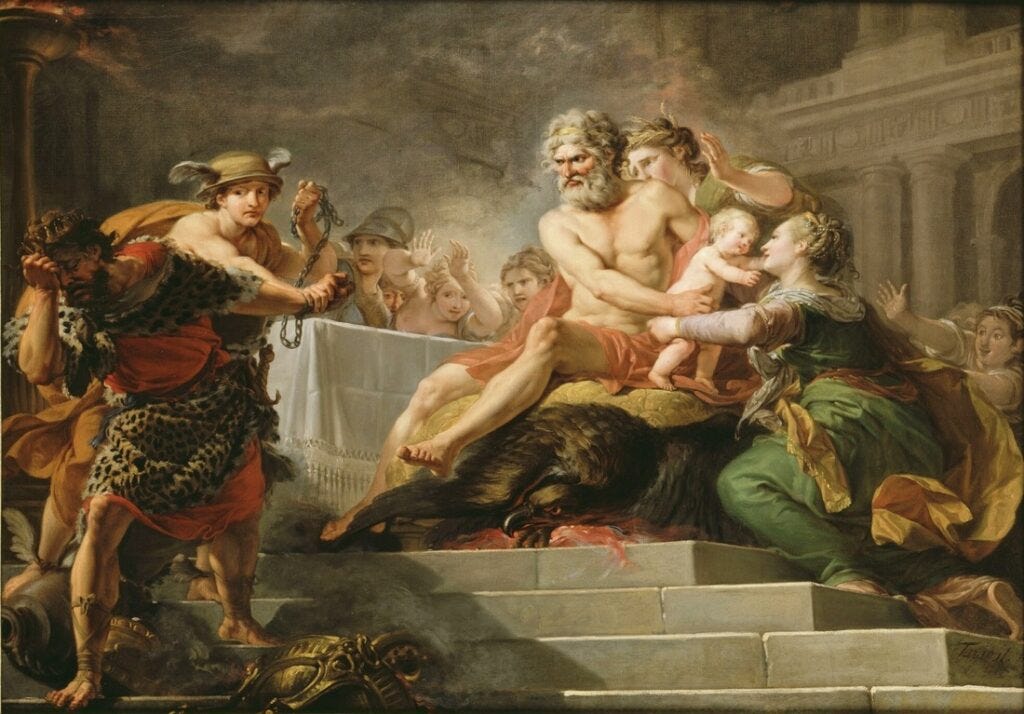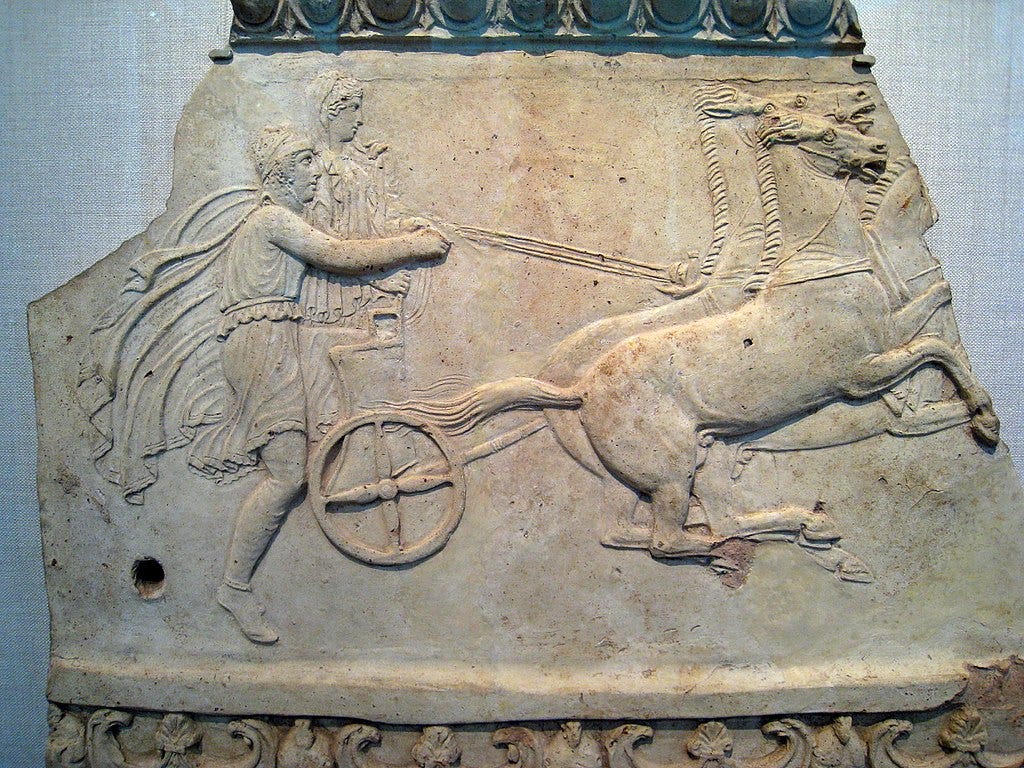by Ed Whelan, Contributing Writer, Classical Wisdom
He was one of the first generation of mortals, and his offense against the Olympian Gods led to him suffering a gruesome and terrible eternal punishment. It was because of his crimes that the famous House of Atreus was cursed, whose tragedies were the themes of works by Aeschylus and other great writers. He is Tantalus, a figure of Greek myth with a legacy so vast, it has found its way into modern language. So, what exactly do we know about him?
The Background to the Tantalus Myth
Tantalus may have been a historical king. In mythology, he is said to be the ruler of Sipylus, which was located in Asia Minor (Modern Turkey), and was fabulously rich. As for parentage, the myths differ; he is believed to be the son of a Lydian king, but there are some sources which claim that he was really the son of Zeus. Most sources claim that he was married to Dione, a daughter of Atlas and among his children were Broteas, a legendary hunter, Niobe, who was the archetypal mourning mother in Greek myth, and Pelops, who was a great hero. Tantalus was known for his arrogance and curiosity. He belonged to the first generation of mortals, and at this time humans and the Gods frequently dined together.
The Crime of Tantalus
Tantalus, like other humans, would attend banquets and enjoyed the hospitality (xenia) of the Olympians. There are a number of different versions at what happened at one of the banquets. In one, Zeus punished Tantalus for misbehaving at a dinner. He was either rude or gossiping about the Olympians, and this was hubris, or disrespecting the divine order. In the best-known version of the myth, Tantalus committed a depraved act. He was determined to see if the gods were really all-seeing. He decided to murder his own son, Pelops. After the killing of his son, the king had the body butchered for meat. Tantalus then put the flesh of Pelops into the food of the gods, which was served at a banquet. When Zeus and the other Olympians were served meals with human flesh, they knew what had happened and were outraged. Only Demeter, who was grieving after the abduction of Persephone, ate some of the remains of Pelops. In other version of the Tantalus myth had the king punished for stealing a golden dog or even ambrosia.
The Punishment of the King
Zeus cursed the king. In Greek mythology, a curse from the gods was a death-sentence which also doomed one’s descendants and home to ruin. In the afterlife, Tantalus was consigned to Hades and to Tartarus, which was reserved for those who had committed great sins and crimes. Here he was punished for eternity. Tantalus was forced to stand in water up to his neck and right under the branch of a fruit tree. When he tried to eat some fruit, the boughs would go higher and when he tried to drink the water would flow away. In another version of the myth a huge rock hangs threateningly over his head for all eternity. The punishment of the king is now synonymous with temptation and inability to be satisfied. From this we get the word tantalize.
The House of Atreus
Pelops was put together again by the Gods. They could not find his shoulder, so they gave him a prosthetic made of ivory. Poseidon later taught him the art of the chariot. He later organized a chariot race in honor of the Olympians at a funeral games, and these became the basis of the Olympics. Pelops was the father of Atreus, who became the King of Mycenae and established the House of Atreus. Pelops’ grandsons were Agamemnon and Menelaus who are both well-known from the Iliad. The divine curse placed upon Tantalus passed on to his sons and their family. The god-cursed descendants of Tantalus committed unspeakable crimes against each other, such as patricide, matricide and brother killing brother. The tragedies of the House of Atreus, such as the sacrifice of Iphigenia by Agamemnon and his subsequent murder by his wife Clytemnestra were a direct result of Tantalus and his crime.
Meaning of the Myth
The myth has many interpretations. In general, the myth can be seen as a warning to humans to respect the gods and not to commit hubris. The myth also shows the power of the gods who punish not only individuals for their sins, but also their descendants. This story is important, as it demonstrates that the Greeks believed in eternal punishment for crimes when alive.,as seen in Tantalus’ torturous punishment in Tartarus. The crime of the king of Sipylus resulted in the murder and mayhem among his descendants. This was a demonstration of the unforgiving nature of the Olympians. Yet Tantalus, his punishment, and his damned family also inspired many great works of Classical literature: His punishment has, ironically, ensured an enduring legacy.








And from a humble Jewish carpenter came the power and grace of forgiveness, but even then, only for those who repent in Truth.